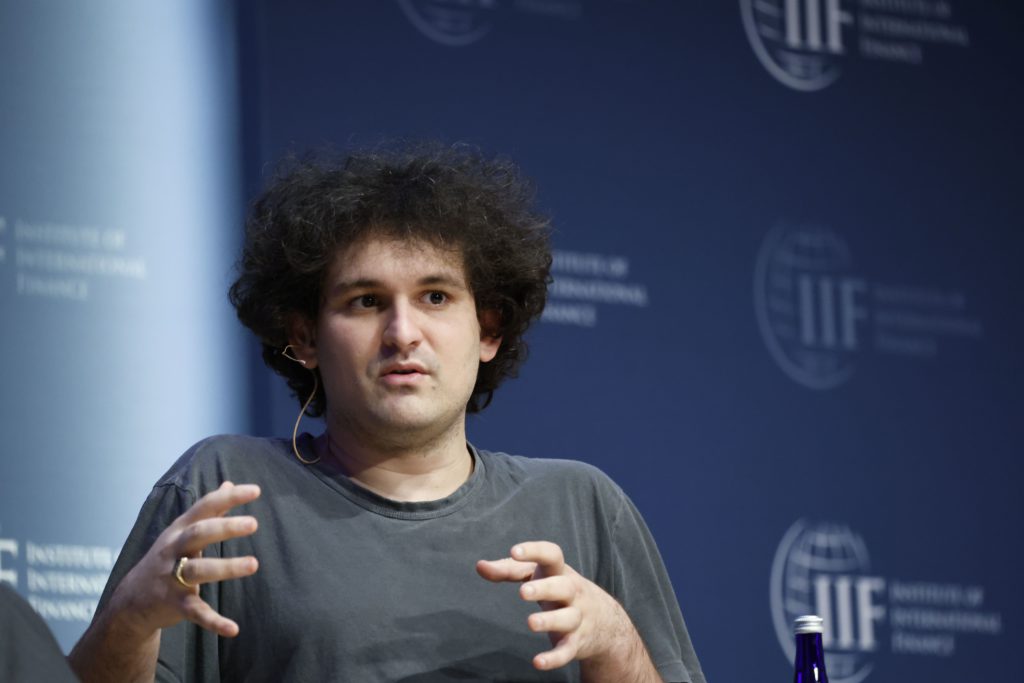The man currently running FTX has bad news for former customers: many of you won’t get back funds lost following the company’s spiral into bankruptcy.
(Bloomberg) — The man currently running FTX has bad news for former customers: many of you won’t get back funds lost following the company’s spiral into bankruptcy.
“At the end of the day, we’re not going to be able to recover all of the losses here,” said John J. Ray III, who’s handling FTX’s restructuring and was the sole witness at a Tuesday hearing before the House Financial Services Committee.
Ray expects international customers to fare worse than US customers. He noted that the number of clients and the volume of trading on the US exchange of FTX was much smaller than on FTX.com. He also said there are more assets they might find that could be attributed to the American company.
FTX founder Sam Bankman-Fried had been scheduled to appear at the hearing. But the former crypto billionaire was arrested in the Bahamas on Monday after the US government filed criminal charges amid multiple probes into his possible misconduct. The charges, unsealed in New York on Tuesday just before the congressional hearing, included conspiracy and wire fraud for allegedly misusing billions of dollars in customers’ funds.
The Securities and Exchange Commission in the morning accused Bankman-Fried of defrauding investors, and the Commodity Futures Trading Commission sued him, along with FTX and the company’s sister trading firm, Alameda Research, for commodity-law violations.
Tuesday’s hearing marks the most direct involvement yet by Congress in the sprawling, tangled fallout from FTX’s bankruptcy. The onetime shining star of crypto imploded in November, sending shock waves across the industry and returning the spotlight to the lack of oversight in Washington.
Lawmakers are weighing whether to crack down on the Wild West of crypto after a wave of high-profile collapses. Bankman-Fried had portrayed his company as an ethical actor, while encouraging more scrutiny of competitors like Binance. His abrupt downfall has shattered that image and put the entire industry in the crosshairs.
At the hearing, Representative Maxine Waters, chairwoman of the House Financial Services Committee, said she was “deeply troubled to learn how common it was for Bankman-Fried and other employees to steal from the cookie jar.”
Alameda Loan
Without their star witness, lawmakers relied on Ray’s testimony for insights on what led to the crypto exchange’s collapse.
He told lawmakers that customer funds from FTX were commingled with assets from Alameda — and that there was no separation between the companies. They were “operated as one company,” he said.
Ray answered questions about a $1 billion loan Bankman-Fried received from Alameda that was disclosed in a bankruptcy filing. The former crypto billionaire had received numerous loans and in one case signed as both the issuer and the recipient, Ray said.
“We have no information, at this time, as to what the purpose or the use of those funds were — and that is part of our investigation,” he said.
Ray accused Bahamian government officials of working with Bankman-Fried to transfer $100 million to about 1,500 customers in the country before the bankruptcy was filed in the US.
The parents of Bankman-Fried are also under scrutiny for their involvement in his companies, Ray testified. He said the family had received payments.
Ray hasn’t minced words when referring to Bankman-Fried and his former top lieutenants.
“The FTX Group’s collapse appears to stem from the absolute concentration of control in the hands of a very small group of grossly inexperienced and unsophisticated individuals,” Ray testified Tuesday.
Some of the unacceptable practices at FTX included the use of computer infrastructure that gave senior managers access to systems that stored customer assets and lacked controls to prevent funds from being redirected, he said. Others are the lack of audited financial statements, the commingling of assets and the ability of Alameda to borrow funds for its own trading or investments.
‘Paperless Bankruptcy’
Ray said FTX is one of the worst cases he’s seen, in terms of lack of documentation. “We’re dealing with literally a paperless bankruptcy,” he said. That makes it difficult to track and trace assets, he said.
He also revealed that he’s brought on Ernst & Young to look into whether FTX properly filled out tax returns.
Bankman-Fried, in remarks prepared for the hearing that were obtained prior to his arrest, took jabs back at Ray, saying the current leader of FTX had rebuffed his offers to help sift through the wreckage of his failed crypto empire and recover customers’ money. FTX and more than 100 related companies were forced to file for bankruptcy last month.
Bankman-Fried has largely blamed FTX’s downfall on Changpeng “CZ” Zhao, chief executive officer of Binance, saying the executive sparked the run on the exchange when he announced plans to dump holdings in FTX’s native token FTT. But Ray said that, based on what’s seen, he doesn’t believe the company was solvent even before that event.
In media interviews following FTX’s collapse, Bankman-Fried has denied trying to commit fraud or break the law, though he has owned up to grievous managerial errors at FTX.
Bankman-Fried hadn’t agreed to testify at another hearing on Wednesday before the Senate Banking Committee, drawing the ire of the panel’s top Democrat and Republican. Senators Sherrod Brown and Pat Toomey said in a statement Monday that they offered Bankman-Fried two different dates to testify but he refused.
“He owes the American people an explanation,” the senators said before Bankman-Fried’s arrest.
–With assistance from Gillian Tan, Max Chafkin and Bob Van Voris.
(Updates throughout with comments from John J. Ray III.)
More stories like this are available on bloomberg.com
©2022 Bloomberg L.P.











